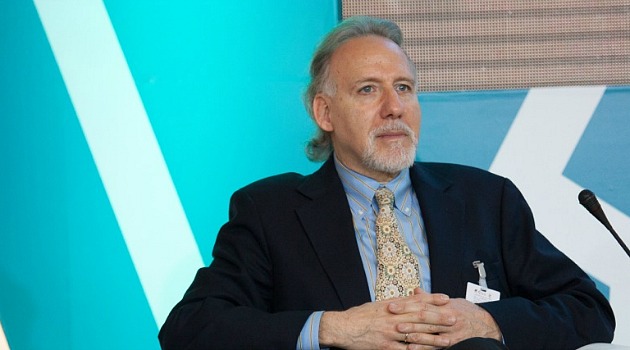
October 25-2013
Jacob Bender, who is Jewish, has been selected by the Philadelphia chapter of the Council on American Islamic Relations (CAIR), to be its executive director.
In that role, he will tackle issues of discrimination that Muslims encounter in the workplace and in the public sphere, and fight expressions of hate in the Philadelphia area.
Bender told The Forward, the main Jewish weekly newspaper in the United States, that he believes his Jewish faith can only help him do the job effectively.
“The Muslim community is under attack from Islamophobic forces, and it is the obligation and responsibility of people of good will to stand up and say this is a bigoted attack,” Bender said. “This is fully in keeping with my life goals.”
The CAIR Philadelphia branch announced the appointment of Bender as its executive director last Tuesday. Bender is the first Jew, and the first non-Muslim, to serve as director of any CAIR branch.
“The needs of the Muslim community are really the needs of any minority community in the United States,” said Iftekhar Hussein, chairman of CAIR-Philadelphia’s board of directors. “Jacob, being Jewish, understands that from his own background.”
Bender’s appointment thus far appears to be facing more criticism from the Jewish community than the Muslim community.
As The Forward noted, the national Jewish leadership has “all but deemed CAIR off-limits for any dialogue.”
In 2006, the Anti-Defamation League (ADL), a major national Jewish organization, accused CAIR of holding extreme positions on Israel and of having links to people and groups that expressed support for terrorist organizations.
Jewish groups have also pointed in the past to the fact that CAIR was initially named as an unindicted co-conspirator in the case of the Holy Land Foundation, an American-based charity charged with raising funds for Hamas. But in 2012, a federal circuit court ordered the reference to CAIR expunged.
“CAIR is far off the radar screen of the Jewish community,” Ethan Felson, vice president of the Jewish Council for Public Affairs, told The Forward. “The Jewish community looked at their record and said, ‘We won’t work with this group.’”
While no official policy has been adopted, the Jewish community has excluded CAIR from all joint interfaith activities with the Muslim community and has focused on ties with the Islamic Society of North America (ISNA) and with local mosques and imams—links that are encouraged by major Jewish groups.
CAIR and Bender reject the assertion that CAIR is in any way extreme. “There will always be those who will try to demonize other groups,” Bender said. “As someone who has long supported Palestinian rights and was critical of the policy of occupation, I find no contradiction between my long-stated opinions on the Middle East and those of CAIR.”
Israel is not a top issue for CAIR, especially its branches, which tend to deal more with countering discrimination against Muslims within the local community.
Could having an American Jew in a leadership position bridge the divides between the two faiths? “There’s always potential for change,” Hussein said, while noting that building ties with Jewish organizations wasn’t the motivation behind hiring Bender.
Bender’s interest in the Muslim community began after the 9/11 terror attacks. A video and television producer, he began organizing interfaith meetings and speaking out against expressions of Islamophobia that increased following the attacks.
His job at CAIR-Philadelphia, one of 20 local chapters across the country, will focus primarily on countering anti-Muslim discrimination. In recent years the chapter has been among the key groups fighting against anti-Sharia laws proposed in Pennsylvania. It has spoken out publicly against anti-Muslim stereotypes following the Boston marathon bombing.
Bender’s background in filmmaking and public speaking, the group’s lay leaders noted, made him fit for the role of a spokesman for the organization and for Muslim civil rights.
